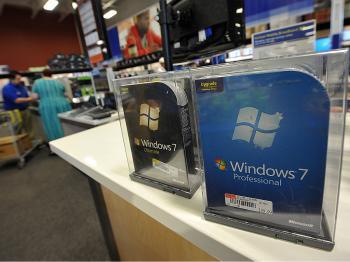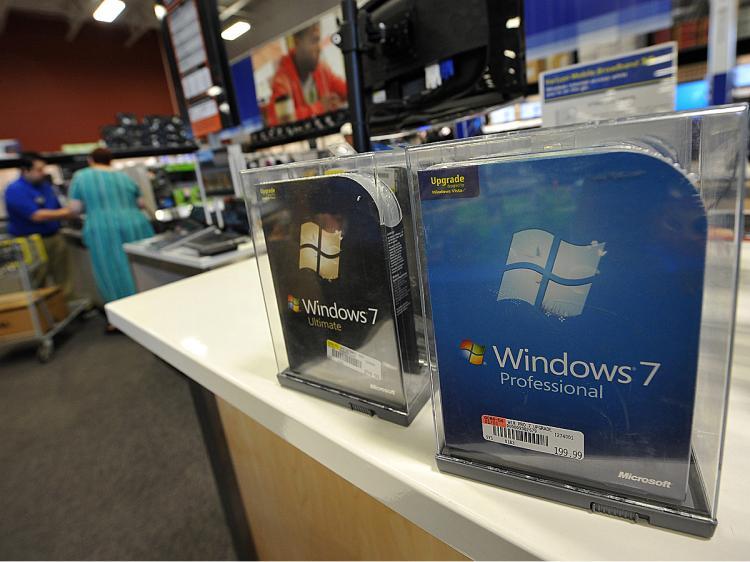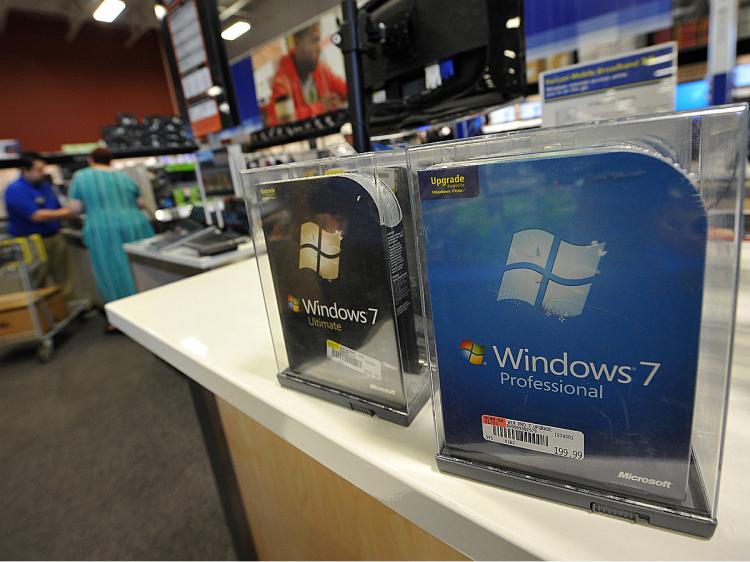Taking a page out of Apple Inc.’s playbook, Microsoft Corp. opened a new chapter in its company history by opening its first retail store in Scottsdale, Ariz., last month.
A second store was opened later in the month in Mission Viejo, Calif., and so far, performance at the stores has been a rousing success according to media reports.
“Retail is an interesting business,” said David Porter, vice president of Microsoft Retail in a recent article.
He continued, “In retail you’re never finished. There’s always a new item. There’s always a better way. We can always improve service. So let’s get better tomorrow. That’s what Microsoft retail will be. It will be better tomorrow than it is today, and it will steadily make progress every single day.”
Microsoft claims that customers have asked for improved service and a more hands-on shopping experience. Most likely, Microsoft, in order to compete with Apple’s retail-level stores, has to make a clean break with its previous sales techniques. Microsoft used to be solely a software business and was not in a position to let customers play with computers, electronics, and gadgets prior to making a purchasing decision.
Today, Microsoft manufactures computer accessories, video games, the Xbox video game console, and the Zune music player.
Microsoft won’t be the last manufacturer to jump into retail. Consumers can buy computers from Apple stores, shoes from Nike Inc. stores, leather goods from Coach Inc. stores, and all kinds of fashion wear from the company stores of Polo Ralph Lauren Corp., The Donna Karan Company LLC (DKNY), and Kenneth Cole Productions Inc., just to name a few.
But most manufacturer-owned retail stores reside in busy shopping malls with plenty of independent retailers that already sell these manufactured products.
“The motivation for these manufacturers might be more obvious if they set up shop in markets where their products otherwise lacked any sort of retail presence,” questioned a recent article by Knowledge@Wharton (KW), the research arm of the University of Pennsylvania.
With the economy affecting many manufacturers’ profit margins, more and more producers have opened their own retail stores. Many are in the same location as independent stores that already sell their products, begging the question of whether independent retailers and manufacturer-owned stores can coexist.
“Increasingly, manufacturers sell their products in their own retail stores, and many of these stores appear to be in direct competition with independent retailers; i.e., both types of retail stores are physically co-located,” KW said.
KW suggested that such a strategy by manufacturers could alienate independent retailers. The retailers might just keep some of the manufacturer’s products on hand without heavily promoting or selling them.
It also could result in price squeezing. Prize squeezing happens when the producer increases the price of its product when selling to the wholesaler and reduces the price when selling to the retailer. Such action reduces profit margin for the wholesaler as it can’t reduce its price when selling to the retailer or it would go out of business.
But most lawsuits brought to court on the basis of “price squeezing” have not been very successful. Judges usually ruled that unless a contract was violated, producers are not legally obligated to sell to wholesalers, and that wholesalers have the option of not doing business with the manufacturer.
One such case was the antitrust suit of Pacific Bell Telephone Co. v. linkLine Communications Inc. that was heard on Dec. 8, 2008, and decided Feb. 25, 2009. All nine judges in this case found that “price squeezing” did not exist, as there was no obligation for the producer to only sell to the wholesaler.
“[The] linkLine [decision] is an important new tool for manufacturers who seek to strengthen their ability to compete against other brands,” said Richard J. Wegener from Fredrikson & Byron P.A. in a statement.
Research has also indicated that most of the time, being within close proximity to company stores acts as a boon to independent retailers.
The manufacturer, on average, charges higher prices than independent retailers for its products. Also, the independent store owner does not have to slash prices as much, as it is not competing against those who try to undercut its sale efforts by pricing the product at lower prices. What happens in reality is that the independent can mark down its sales price from the company store’s price and thus benefit greatly from the company store’s presence.
For example, the Apple Store charges more for the iPhone smartphone than other retailers, such as Best Buy or AT&T stores. One interviewed iPhone purchaser from Fairfax, Va., said that when buying the iPhone and services from the AT&T stores, the iPhone becomes significantly cheaper.
Additionally, an independent retailer can benefit from greater publicity when located close to a company store. The company store acts as free publicity and advertising for retailers selling the same products.
“When consumer demand is affected by own and competitor marketing efforts at the retail level, it is possible to find ‘complementary benefits’ for both parties ... The company store channel affects the retail market. Independent retailers are induced to charge more and are also more willing to invest in marketing effort when the company store is present,” KW experts said.
A second store was opened later in the month in Mission Viejo, Calif., and so far, performance at the stores has been a rousing success according to media reports.
“Retail is an interesting business,” said David Porter, vice president of Microsoft Retail in a recent article.
He continued, “In retail you’re never finished. There’s always a new item. There’s always a better way. We can always improve service. So let’s get better tomorrow. That’s what Microsoft retail will be. It will be better tomorrow than it is today, and it will steadily make progress every single day.”
Microsoft claims that customers have asked for improved service and a more hands-on shopping experience. Most likely, Microsoft, in order to compete with Apple’s retail-level stores, has to make a clean break with its previous sales techniques. Microsoft used to be solely a software business and was not in a position to let customers play with computers, electronics, and gadgets prior to making a purchasing decision.
Today, Microsoft manufactures computer accessories, video games, the Xbox video game console, and the Zune music player.
Microsoft won’t be the last manufacturer to jump into retail. Consumers can buy computers from Apple stores, shoes from Nike Inc. stores, leather goods from Coach Inc. stores, and all kinds of fashion wear from the company stores of Polo Ralph Lauren Corp., The Donna Karan Company LLC (DKNY), and Kenneth Cole Productions Inc., just to name a few.
But most manufacturer-owned retail stores reside in busy shopping malls with plenty of independent retailers that already sell these manufactured products.
Squeezing Profits
“The motivation for these manufacturers might be more obvious if they set up shop in markets where their products otherwise lacked any sort of retail presence,” questioned a recent article by Knowledge@Wharton (KW), the research arm of the University of Pennsylvania.
With the economy affecting many manufacturers’ profit margins, more and more producers have opened their own retail stores. Many are in the same location as independent stores that already sell their products, begging the question of whether independent retailers and manufacturer-owned stores can coexist.
“Increasingly, manufacturers sell their products in their own retail stores, and many of these stores appear to be in direct competition with independent retailers; i.e., both types of retail stores are physically co-located,” KW said.
KW suggested that such a strategy by manufacturers could alienate independent retailers. The retailers might just keep some of the manufacturer’s products on hand without heavily promoting or selling them.
It also could result in price squeezing. Prize squeezing happens when the producer increases the price of its product when selling to the wholesaler and reduces the price when selling to the retailer. Such action reduces profit margin for the wholesaler as it can’t reduce its price when selling to the retailer or it would go out of business.
Worth the Trouble?
But most lawsuits brought to court on the basis of “price squeezing” have not been very successful. Judges usually ruled that unless a contract was violated, producers are not legally obligated to sell to wholesalers, and that wholesalers have the option of not doing business with the manufacturer.
One such case was the antitrust suit of Pacific Bell Telephone Co. v. linkLine Communications Inc. that was heard on Dec. 8, 2008, and decided Feb. 25, 2009. All nine judges in this case found that “price squeezing” did not exist, as there was no obligation for the producer to only sell to the wholesaler.
“[The] linkLine [decision] is an important new tool for manufacturers who seek to strengthen their ability to compete against other brands,” said Richard J. Wegener from Fredrikson & Byron P.A. in a statement.
Research has also indicated that most of the time, being within close proximity to company stores acts as a boon to independent retailers.
The manufacturer, on average, charges higher prices than independent retailers for its products. Also, the independent store owner does not have to slash prices as much, as it is not competing against those who try to undercut its sale efforts by pricing the product at lower prices. What happens in reality is that the independent can mark down its sales price from the company store’s price and thus benefit greatly from the company store’s presence.
For example, the Apple Store charges more for the iPhone smartphone than other retailers, such as Best Buy or AT&T stores. One interviewed iPhone purchaser from Fairfax, Va., said that when buying the iPhone and services from the AT&T stores, the iPhone becomes significantly cheaper.
Additionally, an independent retailer can benefit from greater publicity when located close to a company store. The company store acts as free publicity and advertising for retailers selling the same products.
“When consumer demand is affected by own and competitor marketing efforts at the retail level, it is possible to find ‘complementary benefits’ for both parties ... The company store channel affects the retail market. Independent retailers are induced to charge more and are also more willing to invest in marketing effort when the company store is present,” KW experts said.






